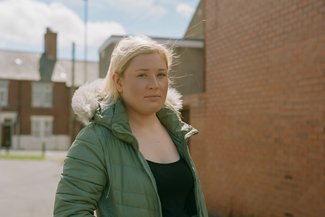
Multiple Disadvantage in Greater Manchester
Calls for all local authorities in Greater Manchester to work together to ensure the most marginalised women are included and involved in its Covid-19 recovery plans.

7 Feb 2022
The Government’s ambition to ‘level up’ the country, spreading opportunity and prosperity to all parts of it, is to be welcomed. At the heart of these plans, however, we need decisive action from leaders to improve gender inequality at both national and regional level for this to truly lead to meaningful change for the many women and girls and their communities currently being left behind.
Agenda’s evidence from throughout the pandemic has made clear the devastating impact Covid-19 has had on disadvantaged women and girls and the services supporting them. All of the services we surveyed through our Voices from Lockdown research reported an increase in the complexity of need in the women and girls they support through this time – with almost a third reporting an increase in poverty, destitution and basic needs.
Voluntary and community services on the frontline are agile and innovative in supporting the most vulnerable women and girls. They provide invaluable support, are at the heart of their communities, and are proven to be cost-effective. In the long term, £2.84 is saved for every £1 spent on women’s centres, with one centre making a saving of £18 million over a 5-year period. Yet many have struggled to meet the unprecedented increase in demand – with nearly a third (32%) reporting a lack of confidence about their future sustainability during the pandemic – and have already faced years of precarious funding.
To truly level up opportunities for the most vulnerable women and girls across the UK, commissioners and decision makers must work with the specialist women’s sector at a regional and local level to develop strategies, identify gaps in their communities and commission services that are tailored to specific experiences, including those of marginalised girls and young women, Black, Asian and minoritised women and girls, and those with care experience.
Agenda’s work in one regional area with devolved powers, Greater Machester, has shown this is possible. Local and regional decision makers, working in consultation with local partners and women with lived experience, can generate powerful solutions to the economic, health and wellbeing challenges which really drive inequality. Only through harnessing this potential and centring marginalised women and girls’ needs can this strategy truly hope to ‘level up’ opportunities for all.